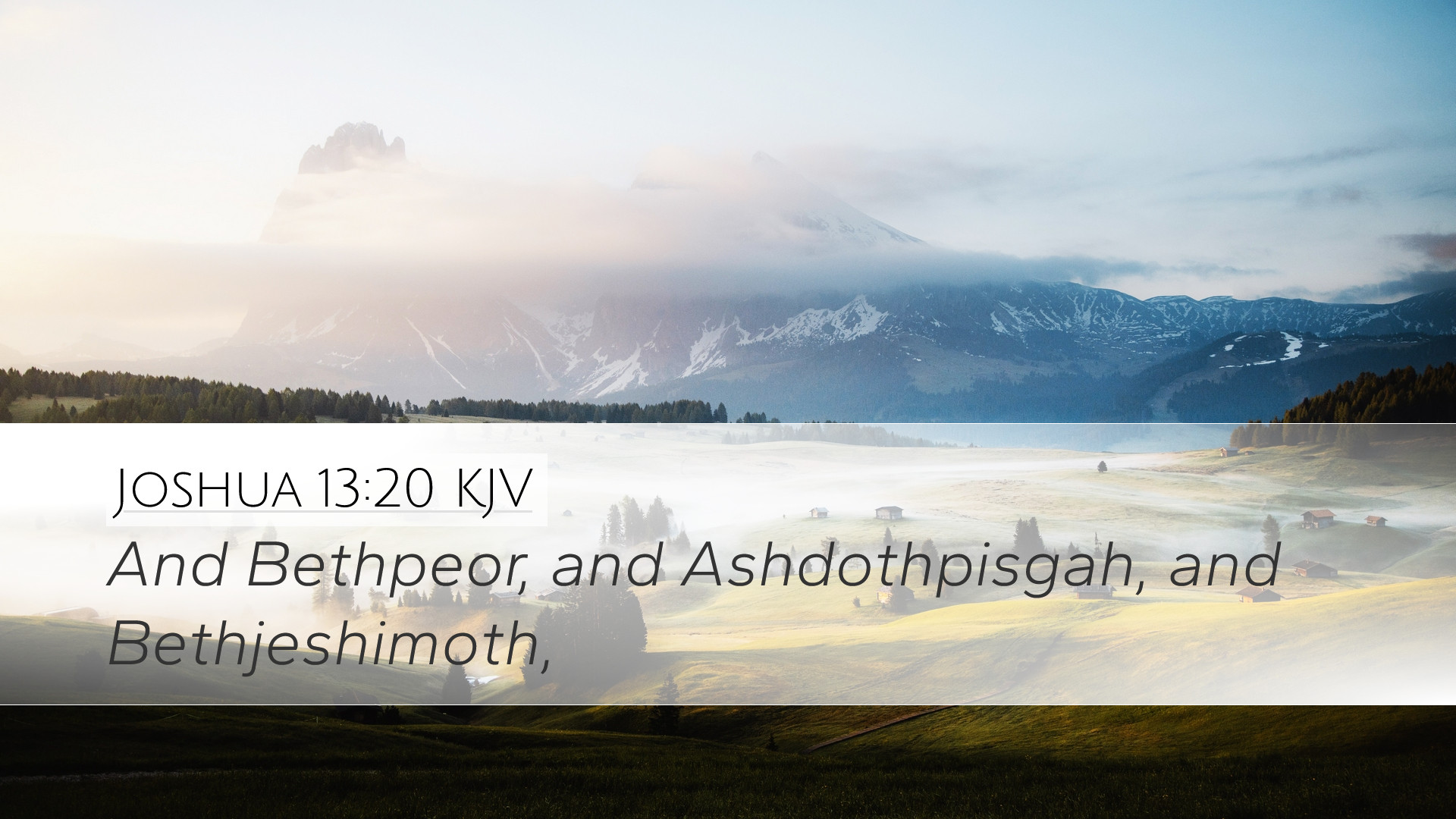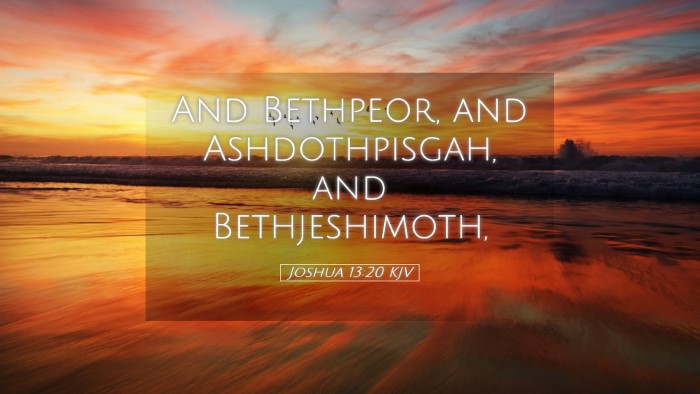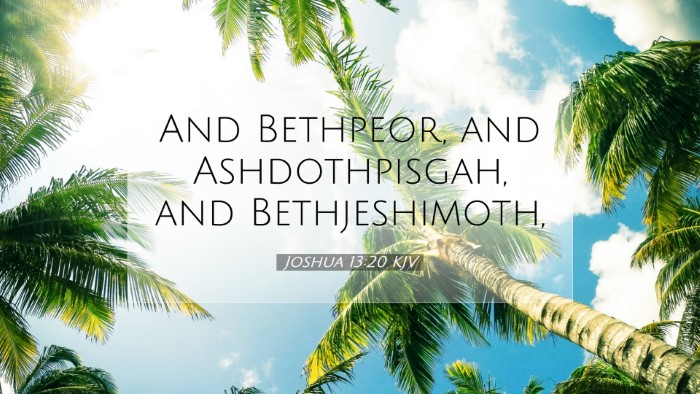Commentary on Joshua 13:20
Verse: Joshua 13:20 - "And the plain of Jordan and the coast thereof, even the city of Jericho, and the city of the palm trees, which is Zoar, are all in the plain." (KJV)
Introduction
This verse addresses a critical geographical aspect regarding the inheritance of the tribes of Israel. It speaks specifically to the land allocation and the importance of the territories mentioned. Various commentaries elucidate the historical context and theological implications of this verse.
Historical Context
Matthew Henry's Commentary provides insight into the allocation of land to the tribes of Israel. This is part of the broader narrative of the conquest of Canaan and the organized settlement of the Israelites in their promised land.
- The territories mentioned (the plain of Jordan, Jericho, and Zoar) signify strategic locations for the Israelites.
- Jericho, known as the "City of Palms," plays a crucial role in the biblical narrative, being one of the first cities conquered by Joshua.
Theological Implications
Albert Barnes' Commentary emphasizes the spiritual significance of the land as a representation of God’s promises fulfilled. The allocation of land had deep-rooted meanings related to covenant and divine faithfulness.
- Each city mentioned symbolizes a portion of the covenant promise bestowed upon the Israelites.
- The regions described were not merely locations but were imbued with theological significance, illustrating God's providence.
Furthermore, the concept of inheritance is central to understanding the nature of God's relationship with His people. The division of land serves as a reminder of God’s provision and the fulfillment of His promises.
Exegesis of Key Terms
Adam Clarke's Commentary delves into an exegesis of certain key terms in the verse:
- Plain of Jordan: Represents a fertile plain that was advantageous for agriculture, symbolizing God's blessing of abundance and fertility.
- City of Jericho: Known for its fortified walls, Jericho represents both human pride and divine intervention, highlighting the importance of faith in overcoming obstacles.
- City of Palm Trees (Zoar): Its association with abundance and the fruitful nature of the land is an indicator of God's providential care for His people.
Interpretations by Scholars
In examining Joshua 13:20, scholars highlight various interpretations:
- Geographical Significance: The verse serves to locate and define the boundaries of Israelite territory, a crucial element for understanding the historical context of the Israelite nation's settlement.
- Covenantal Reminder: The mention of specific cities acts as a reminder of God's covenant with Israel and His unwavering guidance throughout their journey.
Applications for Today
For pastors, students, and theologians, the deeper meanings derived from Joshua 13:20 urge a reflection on the modern implications of inheritance and fulfillment of promises:
- Faithfulness of God: Just as God fulfilled His promise to Israel by giving them the land, believers today can trust in His faithfulness to fulfill His promises in their lives.
- Importance of Place: Recognizing that certain locations have spiritual significance helps understand how God interacts with His people through history.
- Covenant Relationship: The established covenant shows the relational aspect of God's dealings with humanity, prompting believers to reflect on their commitments and relationships with God.
Conclusion
Joshua 13:20 serves as a vital reminder of the historical and theological foundations of the Christian faith. Understanding this verse through the lenses of various public domain commentaries sheds light on God's unchanging nature, His fulfillment of promises, and His carefully orchestrated plan for His people.
As we continue to reflect on this verse, may we be encouraged to acknowledge God's provision and remain steadfast in our faith as we navigate our own journeys of faith.


